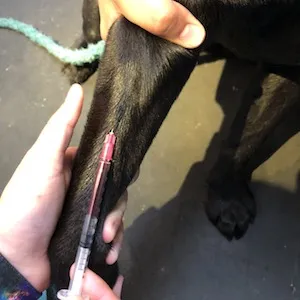Heartworm disease is a severe and potentially life-threatening condition affecting dogs, cats, and ferrets across the United States and globally. Caused by foot-long worms residing in the heart, lungs, and associated blood vessels, it leads to devastating consequences such as severe lung disease, heart failure, and damage to other vital organs. Understanding this silent threat and the importance of preventive measures, particularly through reliable options like Heartgard Medicine, is paramount for every pet owner. This guide will provide comprehensive insights into heartworm disease, its transmission, symptoms, diagnosis, treatment, and crucially, how to safeguard your beloved companions.
The insidious nature of heartworm disease lies in its ability to progress unnoticed in its early stages. By the time symptoms manifest, significant damage may have already occurred. This underscores why proactive protection with Heartgard medicine and regular veterinary check-ups are not just recommendations but vital components of responsible pet ownership. For instance, ensuring your dog takes its preventative, perhaps with the help of healthy pill pockets for dogs, can make a critical difference in maintaining their long-term health.
What is Heartworm Disease?
Heartworm disease impacts various mammal species, including wildlife like wolves, coyotes, and foxes, which often serve as carriers in urban proximity. The disease’s manifestation varies significantly among common household pets:
- Dogs: As natural hosts, dogs allow heartworms to mature, mate, and reproduce. Untreated, dogs can harbor hundreds of worms, leading to lasting damage to the heart, lungs, and arteries. This permanent damage emphasizes why Heartgard medicine for prevention and early treatment are crucial to a dog’s health and quality of life.
- Cats: Cats are atypical hosts; most worms don’t reach adulthood. Typically, affected cats have only one to three worms, or even none. However, even immature worms cause significant harm, leading to Heartworm Associated Respiratory Disease (HARD). Notably, the treatment used for dogs is unsafe for cats, making prevention with appropriate feline Heartgard medicine or similar preventatives the only viable defense.
- Ferrets: Ferrets are highly susceptible, similar to dogs, and can develop severe disease from even a single worm due to their small heart size. Diagnosis is often difficult, and there’s no approved treatment, making prevention with ferret-specific Heartgard medicine or equivalent crucial for both indoor and outdoor ferrets.
How Heartworm Disease is Transmitted
The mosquito is the indispensable vector in the heartworm life cycle. Infected animals, such as dogs, foxes, or coyotes, carry microscopic baby worms (microfilariae) in their bloodstream. When a mosquito feeds on an infected animal, it ingests these microfilariae, which then mature into “infective stage” larvae within 10 to 14 days. Subsequently, when this infected mosquito bites another susceptible animal—be it a dog, cat, or wild species—it transmits these infective larvae. These larvae take approximately six months to develop into sexually mature adult heartworms within the new host. Adult heartworms can live for 5 to 7 years in dogs and 2 to 3 years in cats, with each mosquito season potentially increasing the worm burden in an infected pet. This continuous cycle highlights the importance of year-round protection with Heartgard medicine.
Recognizing the Signs of Heartworm Disease
Detecting heartworm disease early can be challenging as symptoms often don’t appear until the infection is advanced. The severity and manifestation of signs can differ by species:
Signs in Dogs
Early stages frequently show few or no symptoms. As the infection progresses, or in heavily infected and active dogs, more pronounced signs develop. These may include:
- A mild, persistent cough.
- Reluctance to exercise or fatigue after moderate activity.
- Decreased appetite and weight loss.
Advanced cases can lead to heart failure, characterized by a swollen belly due to fluid accumulation. In severe instances, a sudden blockage of blood flow within the heart, known as caval syndrome, can occur, causing labored breathing, pale gums, and dark, coffee-colored urine. This is a life-threatening emergency requiring prompt surgical intervention.
Signs in Cats
Heartworm disease in cats presents subtly or dramatically. Symptoms can include:
- Coughing and asthma-like attacks.
- Periodic vomiting.
- Lack of appetite or weight loss.
- Difficulty walking, fainting, or seizures.
- Fluid accumulation in the abdomen.
Tragically, some cats experience sudden collapse or sudden death as the first sign of the disease, underscoring the critical need for prevention.
Signs in Ferrets
Ferrets exhibit symptoms similar to dogs but with rapid progression due to their small heart size. Even a single worm can cause severe respiratory distress. Key signs include:
- Lethargy, fatigue, or tiredness.
- Open-mouth and/or rapid breathing.
- Pale blue or muddy gum color.
- Coughing.
- Fluid in the lungs, decreased appetite, weight loss, hind leg paralysis, or an enlarged abdomen. Bilirubinuria (dark urine) is also common.
Assessing Your Pet’s Heartworm Risk
The risk of heartworm infection is often underestimated. Many factors contribute, even if heartworms don’t seem prevalent in your immediate area. Heartworm disease is spreading annually to new regions, and local incidences can be higher than perceived. Wild animals like coyotes, wolves, and foxes act as carriers, and infected mosquitoes can travel long distances via wind. Relocation of infected pets also contributes significantly to its spread, as seen after events like Hurricane Katrina.
Heartworm disease has been diagnosed in all 50 states, and risk factors are unpredictable, varying dramatically from year to year due to climate changes and wildlife presence. Even indoor pets are at risk because mosquitoes can find their way inside. For these reasons, the American Heartworm Society (AHS) recommends the “think 12” approach: annual heartworm testing and year-round administration of preventatives like Heartgard medicine for 12 months.
The Importance of Heartworm Testing
Heartworm disease is progressive, and early detection significantly improves recovery chances. Since pets show few or no early signs, regular heartworm testing by a veterinarian is crucial. This test requires a small blood sample and detects heartworm proteins, providing quick results. If a pet tests positive, further diagnostic tests may be ordered to assess the disease’s severity.
When Should Your Pet Be Tested?
Testing guidelines vary slightly for different pets:
- Dogs: Annual testing is recommended, usually during routine preventive care visits.
- Puppies under 7 months can start Heartgard medicine without a test but should be tested 6 months after the initial visit, again 6 months later, and then yearly.
- Adult dogs over 7 months not previously on a preventative need testing before starting Heartgard medicine, followed by retesting at 6 and 12 months, and annually thereafter.
- If doses are missed, restart prevention immediately and retest 6 months later. This allows time for heartworms to mature enough for detection.
Annual testing is vital even with year-round prevention, as no medication is 100% effective. Missed doses, vomiting pills, or rubbing off topical medication can leave pets unprotected. If your dog has a different health concern, such as diarrhea, it’s essential to address that too; understanding the best anti diarrhea medicine for dogs can be part of a comprehensive care plan.
- Cats: Heartworm infection is harder to detect in cats. Both antigen and antibody tests are preferred, sometimes supplemented by X-rays or ultrasound. Cats should be tested before starting preventatives and retested as deemed appropriate by the vet. As there’s no approved treatment for cats, prevention with suitable Heartgard medicine is paramount.
- Ferrets: Diagnosis can be problematic. Veterinarians may recommend antigen testing and diagnostic imaging like echocardiography to confirm the presence of worms.
 Cat at veterinary clinic undergoing examination
Cat at veterinary clinic undergoing examination
What to Expect if Your Dog Tests Positive for Heartworms
A positive heartworm diagnosis can be alarming, but most infected dogs can be successfully treated. The treatment aims to stabilize the dog, kill adult and immature worms, and minimize side effects.
- Confirm the Diagnosis: Due to the expense and complexity of treatment, an initial positive antigen test should always be confirmed with a different test.
- Restrict Exercise: Physical activity must be severely restricted immediately upon diagnosis to prevent further damage to the heart and lungs. The more severe the symptoms, the less activity your dog should have.
- Stabilize Your Dog’s Disease: Before specific heartworm treatment can begin, your dog’s condition may need stabilization, which can take several months in severe cases or with co-existing conditions.
- Administer Treatment: Once stable, your veterinarian will recommend a multi-step treatment protocol, often following American Heartworm Society guidelines. Dogs with mild or no symptoms typically have a high success rate. Treatment involves specific medication like melarsomine.
- Test (and Prevent) for Success: Approximately 9 months after treatment, a heartworm test will confirm the elimination of all worms. To prevent reinfection, year-round administration of Heartgard medicine is essential for the rest of your dog’s life.
Managing a Positive Heartworm Diagnosis in Cats
While some feline heartworm infections resolve spontaneously, the damage caused can be permanent. Heartworms can affect the cat’s immune system, causing respiratory issues like coughing, wheezing, and difficulty breathing, and may even migrate to other organs. The death of adult worms can lead to severe complications such as blood clots and lung inflammation.
- Diagnosis: Cats typically have fewer worms than dogs, but even one or two can cause severe illness. Diagnosis is complex, involving physical exams, X-rays, blood tests (CBC, antigen, antibody), and sometimes ultrasound.
- Treatment: There is no approved drug therapy for heartworm in cats, and the dog treatment is unsafe for them. Veterinary care focuses on stabilization and long-term management.
- Monitor Your Cat: Spontaneous clearing is possible, but damage may persist. For asymptomatic cats with lung worms, chest X-rays every 6-12 months may be recommended. Mild symptoms might be managed with low doses of prednisolone to reduce inflammation.
- Provide Veterinary Care: Severe cases may require hospitalization for intravenous fluids, medications for lung and heart symptoms, antibiotics, and nursing care. Surgical removal is rare but sometimes possible.
- Maintain Prevention: Cats that have been infected are susceptible to reinfection. Both indoor and outdoor cats are at risk. Monthly Heartgard medicine (or suitable alternatives) in spot-on or pill form is crucial to prevent new infections.
Heartworm Disease in Ferrets: Diagnosis and Management
Ferrets are highly susceptible to heartworms, and even a single worm can lead to severe issues like coughing, wheezing, breathing difficulties, and sudden death. Other signs include fluid in the lungs, decreased appetite, weight loss, hind leg paralysis, enlarged abdomen, and dark urine (bilirubinuria).
- Diagnosis: Ferrets can harbor multiple worms, but one is enough to cause serious harm. Diagnosis is complicated, involving physical exams, X-rays or ultrasound, CBC, and various blood tests.
- Treatment: Currently, there’s no approved drug therapy for heartworm infection in ferrets, and dog treatments are unsafe. Veterinary care focuses on stabilizing the pet and developing a long-term management plan.
- Monitor Your Ferret: Most infected ferrets show clinical signs. X-rays every 6-12 months might be recommended if worms are detected in the lungs. Prednisolone can help with mild symptoms.
- Provide Veterinary Care: Severe disease may necessitate hospitalization for supportive therapies such as IV fluids, drugs for heart and lung symptoms, antibiotics, and general nursing. Surgical removal is rarely an option.
- Maintain Prevention: Given ferrets’ extreme susceptibility and the devastating potential outcomes, year-round monthly prevention with a ferret-approved Heartgard medicine is imperative for both indoor and outdoor ferrets.
 Map showing incidence of heartworm disease across various regions
Map showing incidence of heartworm disease across various regions
Common Questions About Heartgard Medicine and Heartworm Prevention
Pet owners frequently have questions regarding the nuances of heartworm prevention and the role of medications like Heartgard medicine. Here are answers to some of the most common inquiries, providing clarity and guidance for protecting your pets.
Do I Need a Prescription for My Pet’s Heartgard Medicine?
Yes, absolutely. The U.S. Food and Drug Administration (FDA) mandates that heartworm preventives like Heartgard medicine be used “by or on the order of a licensed veterinarian.” This means you must obtain it from your vet or via a prescription to a pet pharmacy. A veterinarian typically performs a heartworm test before prescribing to ensure your pet doesn’t already have adult heartworms. Administering preventives to an infected animal can lead to rare but potentially severe and even fatal reactions. Testing is not necessary for very young puppies or kittens because it takes approximately six months for heartworms to develop to adulthood. Only after a negative test will prevention medication be prescribed.
How Do Monthly Heartgard Preventives Work?
Whether you choose a pill, a topical spot-on, or an injection, all approved heartworm medications, including Heartgard medicine, work by eliminating the immature (larval) stages of the heartworm parasite. This includes the infective larvae transmitted by mosquitoes and the subsequent larval stage developing inside the animal. Critically, within as little as 51 days, heartworm larvae can molt into a juvenile/immature adult stage that preventives cannot effectively eliminate. Therefore, strictly adhering to the schedule (monthly for oral/topical products, or every 6-12 months for injectables) is paramount. Late administration allows immature larvae to progress to a poorly prevented adult stage.
 Veterinary professional drawing a blood sample from a dog for testing
Veterinary professional drawing a blood sample from a dog for testing
Can Heartgard Medicine Also Protect Against Other Parasites?
Yes, many Heartgard medicine products and other heartworm preventives offer broader protection against various internal and external parasites. Depending on the specific product, they might be effective against hookworms, roundworms, whipworms, and tapeworms. Some even target fleas, ticks, ear mites, and the mites causing scabies. However, no single product eliminates all parasites. Always consult your veterinarian to determine the best multi-spectrum product for your pet’s specific needs and local parasite risks. A comprehensive approach to pet care means addressing all potential threats to your pet’s health. For instance, while focusing on parasitic prevention, understanding approaches to treating diarrhea in dogs with imodium can be vital for overall well-being under veterinary guidance.
At What Age Should Young Animals Start on Heartgard Prevention?
Puppies and kittens face the same heartworm risk as adult pets. The American Heartworm Society recommends starting puppies and kittens on a heartworm preventive, such as Heartgard medicine, as early as the product label allows, typically no later than 8 weeks of age. Ferrets begin prevention when they reach at least two pounds. Dosage is based on body weight, not age, and young animals grow rapidly. Regular veterinary visits are essential to ensure the correct dosage is administered as they grow, as a rapid weight gain could necessitate a dosage change within weeks.
Are Heartworms More Common in Certain Areas of the United States?
Heartworms have been found in all 50 states, but incidence rates do vary. High-risk areas often include the Atlantic and Gulf coasts and along river tributaries. Most states also have “hot spots” with significantly higher infection rates. Factors like climate (temperature, humidity), mosquito species present, breeding areas, and the presence of animal reservoirs (infected dogs, foxes, coyotes) influence local risk levels. Even if you live in a seemingly low-risk area or a northern state with cold winters, year-round prevention with Heartgard medicine is recommended. Mosquito species are adapting to colder climates, and some can overwinter indoors. Moreover, many heartworm preventives also de-worm for intestinal parasites, which can pose health risks to humans. A holistic approach to pet health extends beyond heartworm prevention to include addressing common discomforts. Many dogs suffer from skin irritations, and finding the best anti itch allergy medicine for dogs can significantly improve their quality of life.
Is There a Vaccine or Effective Natural Prevention for Heartworms?
No, there is currently no commercially available vaccine for heartworm disease in dogs or cats, though research is ongoing. The only proven method of prevention is through the regular and appropriate use of FDA-approved preventive medications like Heartgard medicine, prescribed by your veterinarian. These are available in various forms—monthly chewables, monthly topicals, or 6-month/12-month injections. Always discuss the best option for your pet with your vet. Furthermore, only heartworm prevention products that have been tested and proven effective by the U.S. Food and Drug Administration (FDA) should be used; there is no effective natural prevention for heartworms.
 Dog resting in a cage during recovery or treatment period
Dog resting in a cage during recovery or treatment period
What Causes a Dog to Die from Heartworm Disease?
Heartworm disease is complex, affecting vital organs such as the heart, lungs, kidneys, and liver. Adult worms inflame blood vessels and can block blood flow, leading to pulmonary thrombosis (blood clots in the lungs) and heart failure. The “foot-long” parasites cause severe damage. Liver or kidney failure can also result. Dogs exposed to a large number of infective larvae simultaneously risk sudden death due to a massive assault on their vascular system. Other animals may live with a few adult heartworms for a long time, showing no clinical signs unless faced with environmental stress or another significant health problem.
Does the Age of a Dog Have Anything to Do with Better Success in Treatment of Heartworm Disease?
A dog’s age is one of several factors influencing heartworm treatment success. Veterinarians consider the dog’s overall health, symptom severity, and diagnostic test results (X-rays, lab work). Older dogs with long-term infections may have pre-existing damage to their lungs, hearts, livers, and kidneys, complicating treatment. Strict adherence to your veterinarian’s instructions, particularly severe exercise restriction during treatment, is vital, as exercise is the leading cause of complications.
 Close-up of heartworms within a dog's heart, highlighting the severity of infection
Close-up of heartworms within a dog's heart, highlighting the severity of infection
Is It Okay to Start Heartgard Medicine Before Heartworm Treatment?
Yes, the American Heartworm Society’s guidelines recommend starting monthly prevention before commencing treatment for existing heartworm disease. This should always be done under direct veterinary supervision, as dogs with microfilariae (baby worms in the blood) could potentially react to the preventive. This “extra-label” use of preventives is appropriate under veterinary guidance. Starting prevention ensures your dog doesn’t acquire new heartworm infections during treatment and helps prevent them from being a source of larvae for mosquitoes, making the existing infection’s treatment more effective. Regular veterinary check-ups are essential not just for discussing Heartgard medicine and heartworm prevention, but also for screening for other serious conditions. For female dogs, awareness of severe issues like pyometra and the role of pyometra antibiotics highlights the importance of timely medical intervention.
What if My Vet Recommends Injections for Heartworm Treatment?
Your veterinarian is recommending the best course of action. Melarsomine is the only FDA-approved drug for heartworm infection treatment in dogs, administered via injection in a veterinary hospital. While there are risks, most adult worms die quickly within 1 to 3 months. Cage rest and drastically restricted exercise during this period significantly decrease complication risks. The AHS protocol often includes other medications to improve success and reduce side effects, such as administering a heartworm preventive for 2 months before melarsomine. Long-term, continuous use of preventives alone is not recommended as an alternative to melarsomine, as adult heartworms continue to cause damage.
What if My Dog Is Still Positive After Heartworm Treatment?
After melarsomine injections, adult worms may continue to die for over a month. Heartworm antigen testing is the most reliable way to confirm elimination. While many dogs are antigen-negative 16 weeks post-treatment, some take longer. Also, a single course may not completely clear all dogs (the AHS protocol includes three melarsomine injections). If a dog is still antigen-positive at 4 months, retesting 2 to 3 months later is typically recommended before determining if adult heartworms remain and if a second treatment course is needed.
Should Ferrets Be on Heartgard Prevention?
Yes, absolutely. Ferrets are highly susceptible to heartworms and are at risk even if kept indoors. The signs in ferrets, similar to dogs but more rapid due to their small hearts, can lead to serious respiratory distress from just one worm. Preventing heartworm disease with ferret-approved Heartgard medicine is far less expensive and safer than treatment. The AHS recommends year-round prevention for ferrets, along with regular veterinary check-ups to maintain their health and heartworm-free status.
 Close-up of a ferret, a small pet susceptible to heartworm disease
Close-up of a ferret, a small pet susceptible to heartworm disease
Can I Use Expired Heartgard Medicine?
No. Like all drugs, Heartgard medicine should be used before its expiration date. It’s impossible to predict effectiveness or safety past this date. The expiration date is established through rigorous FDA-mandated tests, ensuring the product’s efficacy and stability over time. Using expired medication risks leaving your pet unprotected or causing adverse reactions.
What if I Missed 2 Months of Heartgard Prevention for My Dog?
If you’ve missed doses of Heartgard medicine, you must consult your veterinarian immediately. They will advise you to restart your dog on the monthly preventive, then retest your dog 6 months later. This retesting period is crucial because heartworms must be approximately 7 months old before an infection can be accurately diagnosed. Do not assume your dog is safe; prompt veterinary attention is vital.
Conclusion
Heartworm disease poses a significant and ongoing threat to the health and longevity of dogs, cats, and ferrets. Understanding its complex life cycle, recognizing the subtle signs of infection, and appreciating the importance of vigilant prevention are key responsibilities for every pet owner. While effective treatments exist for dogs, particularly with prompt diagnosis and adherence to veterinary protocols, prevention remains the safest, most economical, and most reliable defense for all susceptible pets. Products like Heartgard medicine offer a critical shield against this pervasive parasite. By committing to year-round prevention and regular veterinary testing as recommended by experts like the American Heartworm Society, you can provide your cherished companions with the best possible protection, ensuring they lead healthier, happier lives free from the devastating effects of heartworm disease. Consult your veterinarian today to establish or review your pet’s personalized heartworm prevention plan.
